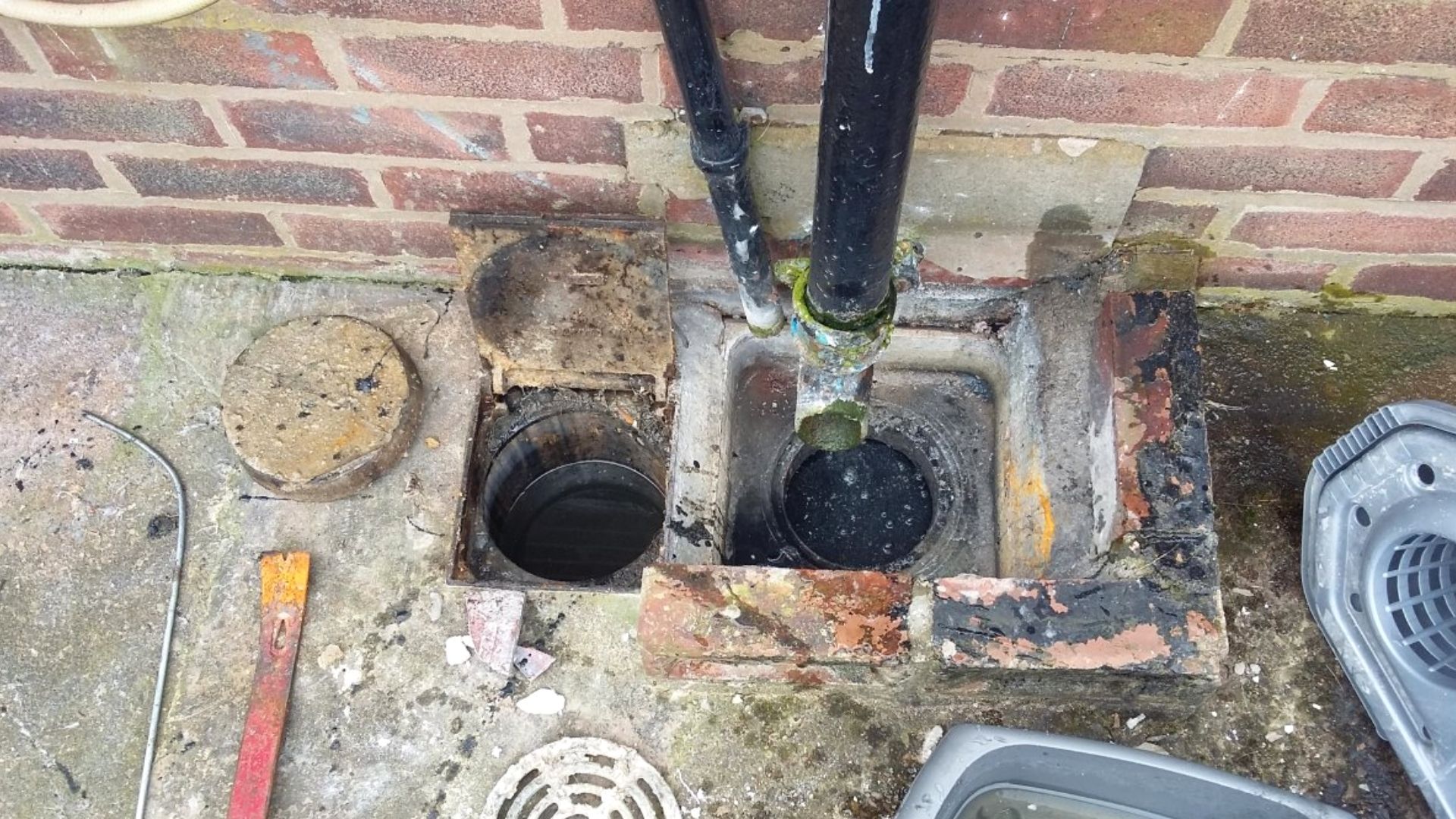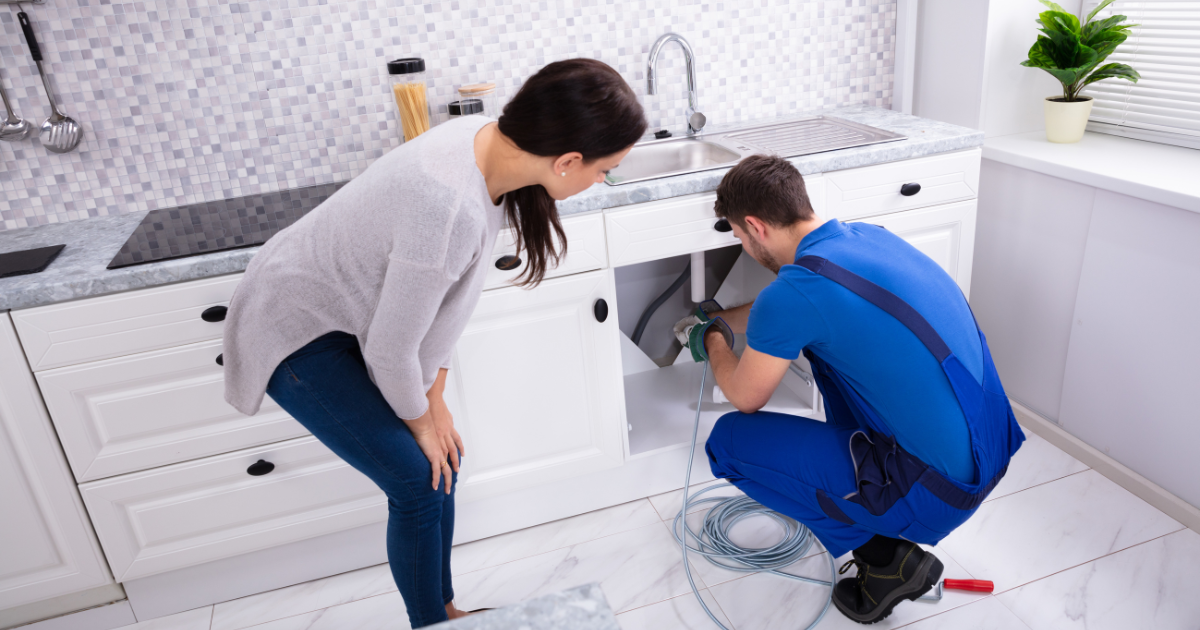Tips for Handling a Blocked Drain Before Contacting Plumbing Professionals
Tips for Handling a Blocked Drain Before Contacting Plumbing Professionals
Blog Article
We've uncovered this great article relating to Tips for Dealing with Clogged Drains and Sewer Lines directly below on the internet and decided it made good sense to talk about it with you here.

Introduction
Taking care of an obstructed drainpipe can be an aggravating experience, interfering with day-to-day activities and potentially causing damages to your residential or commercial property. Nonetheless, prior to connecting to pipes experts, there are actions you can take to resolve the issue on your own. In this guide, we'll check out do it yourself solutions and preventive measures to tackle an obstructed drainpipe properly.
Identifying the Concern
The initial step in dealing with an obstructed drain is identifying the indications. Sluggish water drainage, gurgling sounds, foul odors originating from drains, or water support up prevail indicators of an obstructed drainpipe. Recognizing these indicators early can assist stop additionally difficulties.
Usual Sources Of Blocked Drains
Comprehending the aspects that add to drain pipes clogs is vital for efficient resolution. Typical offenders include hair, soap residue, oil, food particles, and international objects like hygienic products or paper towels. Tree roots invading below ground pipes can additionally trigger significant obstructions.
Do it yourself Solutions
For small blockages, numerous DIY solutions can be reliable. Putting boiling water down the drainpipe can assist liquify grease and particles. Baking soda and vinegar or a combination of salt and baking soda can work as natural cleansers. Utilizing a bettor or plumbing snake to remove blockages is an additional option.
Devices and Equipment
Having the right devices available can make DIY drain cleaning up much more effective. A plunger is a versatile tool for clearing clogs in sinks, bathrooms, and showers. A plumbing snake or auger can reach deeper clogs, while drain cleansing chemicals can be used cautiously for persistent clogs.
Safety nets
To avoid future clogs, embracing preventive measures is important. Set up drainpipe guards or strainers to capture hair and debris before they get in the pipelines. Regularly flush drains pipes with warm water to liquify oil accumulation, and avoid throwing away oil or strong waste down the tubes.
When to Call an Expert
While DIY services can fix minor blockages, particular indications suggest the requirement for professional help. Relentless clogs, foul odors despite cleaning initiatives, or multiple drains supporting at the same time are warnings that require skilled treatment.
Choosing the Right Pipes Service
When selecting a plumbing service, take into consideration aspects such as experience, licensing, and client testimonials. Choose a credible plumbing with a performance history of high quality handiwork and clear rates techniques.
Price Considerations
The cost of specialist drainpipe cleaning company can differ relying on the seriousness of the obstruction and the plumbing's rates. Request quotes from multiple carriers and ask about any surcharges to ensure openness and prevent shocks.
Safety Measures
When trying DIY drain cleansing, focus on safety and security. Use safety handwear covers and eyewear to stay clear of contact with dangerous chemicals or bacteria. Never mix various drain cleaning products, as this can produce hazardous fumes.
Case Researches
Real-life examples highlight the performance of DIY services and the value of timely specialist treatment in solving drainpipe clogs.
Final thought
By following the pointers laid out in this overview, you can successfully take on blocked drains and avoid future plumbing issues. Whether selecting do it yourself solutions or looking for professional help, timely action is vital to preserving a healthy and balanced pipes system and maintaining the stability of your home.
10 TIPS TO CLEAR ANY BLOCKED DRAIN
SIGNS OF A BLOCKED DRAIN
Blocked drains can be a source of property damage and health problems for people and pets. The early warning signs of a blocked drain are:
Overflowing
You’re probably quite used to everything flowing down your drain. As a result, it’s quite alarming seeing water spill back up. If your drain is overflowing, that means you’re facing a blockage.
Gurgling sounds
Gurgling sounds indicate that the water is pooling and pushing against the pipe. If you experience this, it’s often the case that a blockage is a problem.
Slow draining
When emptying your sink or taking a shower, you might notice that the water pools for longer than expected. Usually, the problem worsens rather than getting better by itself, which suggests that the blockage is growing larger.
CAUSES OF A BLOCKED DRAIN
Although most people use their drains appropriately, it’s quite easy to make mistakes. Occasionally, everyday use results in blocked drains too. Common causes include:
Tree roots
Tree roots won’t be the cause of local drain blockages, but they can disrupt your main sewage system. The root keeps growing until it breaches the pipe and causes a blockage.
Toiletries
Although toiletries are essential, some can cause drain blockages. For example, nappies, baby wipes and sanitary products should not be flushed down the toilet.
Foreign objects
When you have kids, there’s always a risk they’ll flush something unusual down the toilet. Toys and other foreign objects become lodged in the u-bend, resulting in a blockage.
Mineral Buildup
When minerals such as calcium build up in your pipes, this causes constriction. Although this may not cause a blockage on its own, it does make it easier for other types of blockages to form.
Soap
Although liquid soap may not cause drain blockages, solid soap bars can get lodged within pipes until they eventually break down. One way to stop this from happening is to use a mesh wire guard to cover plug holes.
Natural Debris
Natural debris can fall into your outdoor drains, especially when you don’t use gutter guards. This usually means leaves and twigs, although it can include dirt and grit too.
HOW TO CLEAR A BLOCKED DRAIN
Boiling water
Boiling water is useful for tackling blocked drains caused by grease, conditioner, and some other kinds of toiletries. This is because these substances have a low melting point, and the extreme heat helps to break them up. Boil a kettle with water and pour it down the drain to shift the blockage.
Natural cleaners
You can use some natural cleaners to create a fizzing effect that breaks drain blockages apart. Try pouring hot water down the drain, then follow it with one cup of bicarbonate of soda and a cup of vinegar. Leave it for ten minutes, then chase it with more hot water. A combination of the hot water and the natural cleaner mixture can break blockages up.
Caustic cleaners
Some stores sell caustic cleaners that take stronger action against drain blockages. It dissolves grease, fat, and oils, making it ideal for tougher blockages. Always follow the instructions on the packaging and ventilate the room before starting.
Plungers
As a simple yet effective tool, plungers can help to dislodge local blockages. They work by forming a seal around the plug hole, followed by a vacuum effect that removes the blockage.
DIY drain snake
You can make a DIY drain snake out of any thin metal wire, such as a coat hanger. Leave a hook at the end of the snake and insert it into the plughole. Try using it to fish out local blockages made of hair. This approach is most effective in showers.
https://preciseservices.com.au/10-tips-to-clear-any-blocked-drain/

I have been very fascinated with Some easy tips to fix blocked drains and I hope you enjoyed the entire page. Enjoyed reading our blog? Please share it. Help other people discover it. Many thanks for your time. Kindly come by our blog back soon.
Or Book Technician Here Report this page